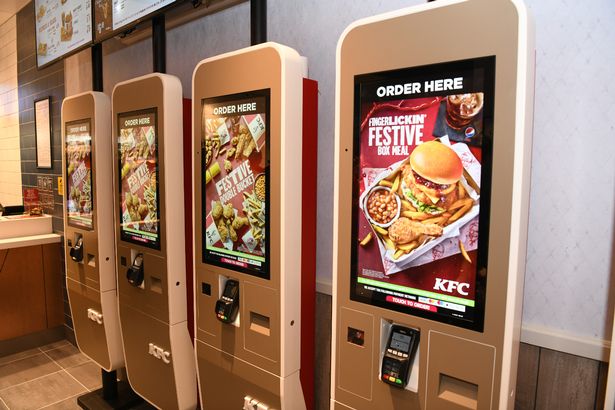The food and beverage industry is undergoing fundamental changes in how consumers buy and what they want to know about the products. At the same time, the industry faces an increased focus on healthy eating by consumers, companies, and governments. Adding to this is a rapidly changing competitive environment with a proliferation of new channels, producers, and products that compete with established brands and outlets.
If these challenges weren’t already enough, today’s companies are also facing unprecedented changes that stress innovation, business model evolution, and supply chain agility. Having the right products with the right content and characteristics, and the right information clearly displayed is necessary. But even all that isn’t enough to guarantee success. The products must also be positioned in the right places at the right time for customers to be able to buy—and that’s the job of the supply chain.
To keep up with all of this, an effective food and beverage supply chain must be fully in sync with the consumer through technology-enabled sensing to satisfy multiple channels with seamless visibility and fulfillment.
Read More
Topics: ERP, Food & Beverage, Supply Chain, Food Technology, CloudSuite Food & Beverage, Infor M3 ERP, Enterprise Software, WMS, Supply Chain Management
Behind all the glitz and glamour fashion brands still have a business to run. It’s clear that in 2023 the back-office and supply chain is in the spotlight when it comes to delivering new and improved customer experiences and meeting expectations around sustainability and product provenance.
Read More
Topics: Manufacturing, Food & Beverage, Small Business, Food Technology, CloudSuite Food & Beverage, Cloudsuite Fashion & Apparel, Infor CloudSuite Fashion PLM
Smart factories represent the next frontier in operational performance, combining human ingenuity, advanced technologies, and data-driven insights. At the heart of this transformation lies data and its analysis. Data is the lifeblood of a smart factory, and its exponential growth necessitates a viable conduit to ensure seamless flow.
Read More
Topics: Manufacturing, Food & Beverage, Small Business, Smart Factories, Food Technology, CloudSuite Food & Beverage, Cloudsuite Fashion & Apparel, Infor CloudSuite Fashion PLM
Secure the future of food and beverage manufacturing through business innovation
Join ICCG on May 23-24 at Infor Food & Beverage Connect in Chicago for a community gathering of food & beverage industry leaders and Infor customers with an emphasis on education, consultation, and mutually beneficial connections to draw our community of customers and peers together.
Attendees will have access to:
- Uncover the innovations shaping the future of the industry
- Attend educational workshops centered on industry-specific business challenges
- Network with fellow food & beverage industry leaders
Read More
Topics: ERP, Food & Beverage, CloudSuite Food & Beverage
It’s a moment of enormous opportunity, with Industry 4.0 transforming the way businesses collect, process, and deploy data, and Maintenance 4.0 applying those tools and techniques to revolutionize asset management.
A strategic approach to Asset Performance Management (APM) helps you keep critical equipment and production lines up and running, using the mountains of operational data now available to help you track equipment performance, anticipate the need for maintenance, and prevent breakdowns before they occur. But even in steady economic times, and certainly in the midst of a global pandemic, the decision to embrace the new technology will always be guided by the bottom line: Will the cost of the new system be justified by the efficiencies and cost savings it delivers?
Infor’s Best Practice Guide, “Why your EAM strategy must evolve to increase food safety,” focuses on five specific, tangible benefits of APM, to help you make an informed decision on an approach that will soon be the price of entry for successful business operations in the 21st century.
Read More
Topics: ERP, Food & Beverage, Distribution, Supply Chain, Supply Chain Visibility, Supply Chain Network, Food Technology, Cloud BI, CloudSuite Food & Beverage, Enterprise Asset Management, Enterprise Software, Infor CloudSuite M3, Infor CloudSuite ERP
There has never been a better opportunity for you to embrace technology that drives innovation. Transforming and evolving as an organization is now a requirement to thrive and protect continuity of business. Infor helps Lawson S3 customers drive digital transformation and ensure business continuity with Infor industry CloudSuites. Infor CloudSuite customers leverage improved automation and role-based security to tighten access to sensitive data, scale quickly and efficiently, and harness the power and responsiveness of Infor’s modern system architecture to stay ahead and compete.
Infor CloudSuites are built on Amazon Web Services (AWS), the market leader for cloud-based infrastructure as a service and platform as a service for over 10 years. This best-in-class system architecture is purpose-built for innovation, providing you with industry-leading scalability and availability, integrated governance and control, and unparalleled extensibility to democratize data for end users.
Infor CloudSuites, including CloudSuite Healthcare, CloudSuite Corporate, and CloudSuite Public Sector, provide an easy path for Lawson S3 financials and global human resources customers to digitally evolve business operations. CloudSuites deliver industry-specific capabilities without extensive customizations or integrations. Infor’s enterprise resource planning (ERP) competitors struggle to tap into the latest advances in enterprise functionality with as little business disruption and as cost effectively as with our AWS tag team.
Read More
Topics: ERP, Food & Beverage, Distribution, Supply Chain, Supply Chain Network, Food Technology, CloudSuite Food & Beverage, Enterprise Asset Management, Enterprise Software
Since the Industrial Revolution, manufacturing processes have undergone several revolutions characterized by ever-greater automation. Today, the fourth industrial revolution, known as Industry 4.0, takes advantage of big data and machine learning to drive smart, highly automated processes. A pretty familiar concept.
Less well understood, but equally momentous, has been a parallel evolution in asset maintenance. Maintenance 1.0 relied on highly-trained specialists to visually inspect machinery. Maintenance 2.0 gave humans instrumentation to measure how equipment was running, while Maintenance 3.0 used real-time monitoring to understand the condition of an asset systematically and programmatically. Now with the Internet of Things (IoT) collecting sensor data, Maintenance 4.0 sees that data captured in a data lake repository, and algorithms and analytics applied to better predict when a given asset will fail, and how to correct the problem—preventing a potential food safety issue.
Read More
Topics: ERP, Food & Beverage, Distribution, Supply Chain, Supply Chain Network, Food Technology, CloudSuite Food & Beverage, Enterprise Asset Management, Enterprise Software
Asset performance is key for food and beverage processors to reliably produce safe food at the lowest cost. This goes beyond only having the equipment available. Asset performance is one of three variables used to calculate the Overall Equipment Effectiveness (OEE)—the other two variables are availability and quality. In food and beverage processing, quality is primarily about food safety, which is non-negotiable. Studies show that a food safety issue leading to a recall in average costs $10 million. The associated brand damage can be unmeasurable.
The state of equipment and the behaviour of workers have a big impact on food safety. Eliminating food safety risks and risks to workers are the primary responsibilities of any food processing company. Numerous food safety issues caused by contaminations with extraneous material like metal coming from broken filling equipment, or grease or detergent remnants are reported to the FDA and RASFF every year. Cross contamination, pathogens, and faulty labeling are other possible reasons why food and beverage manufacturers must recall products
Read More
Topics: Digital Transformation, Food & Beverage, Distribution, Supply Chain, Artificial Intelligence, digital technology, Food Technology, CloudSuite Food & Beverage, Enterprise Software
Many consumers are passionate about the quality of their food, the health implications, and the environmental footprint made by food manufacturers. To meet their shifting expectations, food and beverage manufacturers must speed product introductions and develop new offerings that reflect the changing views on what is fresh, healthy, and mindful—and technology can help. It’s not just taste, freshness, and convenience that drive food purchases today. Conscientious consumers also focus on health, wellness, and social issues as they shop for family meals. They take nutrition labels, visibility into suppliers, humane treatment of animals, and environmental sustainability into consideration when shopping for food. While these expectations put added pressure on food and beverage manufacturers, companies that turn to technology to help, should seize the opportunity. Meeting the demands of today’s socially aware consumers can be a valuable differentiator.
Read More
Topics: ERP, Food & Beverage, Supply Chain, Food Technology, CloudSuite Food & Beverage, Infor M3 ERP, Enterprise Software, WMS, Supply Chain Management
Restaurant and food services organizations have adapted their services in recent times by investing in cloud-based restaurant point of sale and its capacity to integrate across locations with emerging technology. A big trend within that has been in POS integrations with mobile and self-serve solutions that allow guests to manage their own orders. This is particularly pertinent in an era of social distancing. But even before that became central to how restaurant and food service organizations engage with guests, the modern restaurant guest sought out channels where they can manage the details of their orders themselves in favor of the traditional staff-operated POS terminal. That trend was driven by how culture and technology converged.
Self-directed ordering is particularly relevant now when minimizing contact is so important to feeling safe and secure when interacting with brands. The organizations that are winning right now are embracing that by giving up control over managing the details of an order and leaving it to those who know about those order details better than anyone – the guests themselves. What kinds of benefits does this trend represent for the restaurant and food service industries in this era of change? What does it mean for organizations ahead in the 2020s? Let’s take a look.
Read More
Topics: Food & Beverage, Distribution, Supply Chain, Food Technology, CloudSuite Food & Beverage, Enterprise Software








.jpg)
.jpg)

